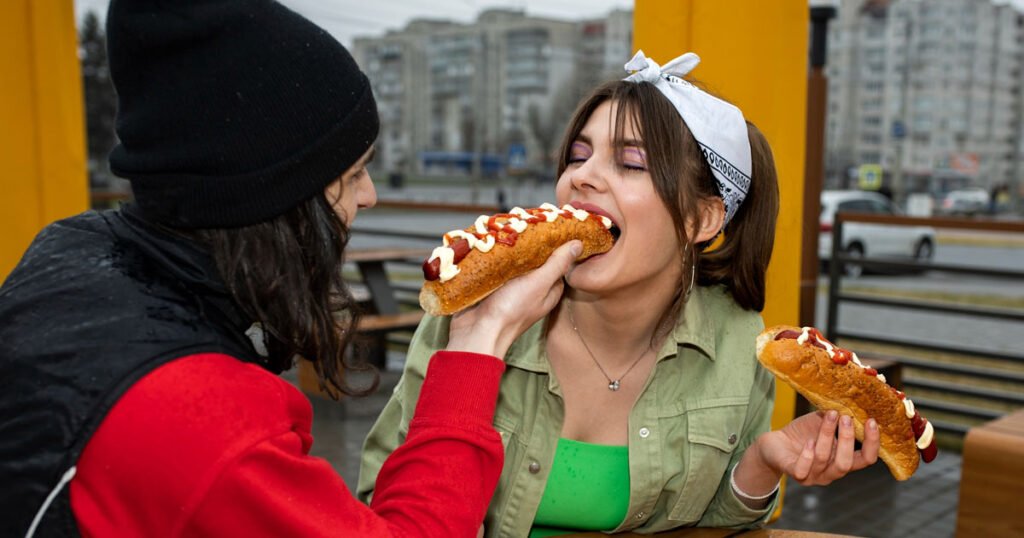Introduction
The rise of social media influencers has dramatically reshaped modern marketing, entertainment, and public interaction. These digital personalities, wielding immense online influence, have captivated audiences worldwide, promoting everything from lifestyle choices to brand endorsements. However, with this newfound power comes great responsibility, and not all influencers have upheld ethical standards. The phrase “influencers gone wild” refers to moments when influencers act inappropriately or make questionable decisions that spark public backlash.
This article will explore what it means when influencers go wild, why this phenomenon matters, real-world examples, and the consequences of such actions. We’ll also look at potential challenges for influencers and the industry, while offering solutions for maintaining responsible online behavior.
What Does “Influencers Gone Wild” Mean?
Defining the Concept
The term “influencers gone wild” refers to instances where influencers engage in reckless, unethical, or controversial behavior. This can range from minor missteps, such as insensitive comments, to more severe actions like promoting harmful products or engaging in illegal activities. With millions of followers, influencers’ actions are scrutinized in real-time, and any misstep can lead to significant repercussions. Visit here for more details allenstoneware.
The Evolution of Influencers
In the past decade, social media influencers have transitioned from niche bloggers to mainstream public figures. These influencers—whether they’re beauty gurus, fitness experts, or lifestyle vloggers—are trusted by their followers, making their actions highly influential. However, when an influencer “goes wild,” it can undermine their credibility, negatively impacting both their brand and their followers.
Importance and Consequences of Influencers Gone Wild
Why It Matters
Influencers hold the power to shape opinions, promote trends, and impact consumer behavior. When they misuse this power, the effects can be widespread, affecting their followers, partnered brands, and even the platforms they operate on. Public trust is fragile, and influencers who fail to respect their role can damage the entire influencer marketing industry.
The Impact on Followers
Influencers have a significant impact on young, impressionable audiences. When these influencers behave irresponsibly, their followers may mimic the same behavior, believing it to be acceptable. This is especially concerning when the influencer promotes harmful or dangerous activities, such as unhealthy diets, irresponsible financial decisions, or risky behaviors like trespassing or pranks.

Brand Reputations on the Line
Brands invest heavily in influencer marketing, and partnering with the wrong influencer can be disastrous. When influencers go wild, their affiliated brands often face backlash by association, leading to boycotts, public relations crises, or financial losses. This can severely damage a brand’s reputation, forcing companies to rethink their influencer partnerships.
Notable Examples of Influencers Gone Wild
1. Logan Paul’s Controversial Video in Japan’s Aokigahara Forest
One of the most infamous cases of influencers gone wild involves Logan Paul, a popular YouTube influencer. In 2018, he faced global outrage after posting a video from Japan’s “suicide forest,” where he filmed a deceased person. The insensitive content led to widespread criticism, loss of brand deals, and temporary suspension of his YouTube ads.
2. Fyre Festival: The Influencer-Backed Disaster
In 2017, the Fyre Festival was promoted by top influencers like Kendall Jenner and Bella Hadid as an exclusive luxury event. However, it turned out to be a poorly organized disaster, leaving attendees stranded and defrauded. Influencers faced backlash for endorsing the event without proper due diligence, leading to questions about influencer accountability in promoting products or services.
3. Jake Paul’s Reckless Behavior
Jake Paul, another popular YouTuber, has a history of disruptive behavior, including hosting large parties during the COVID-19 pandemic. His actions sparked outrage, with many calling him irresponsible for encouraging gatherings during a global health crisis. This tarnished his public image and led to legal scrutiny.
4. The Beauty Community Drama
The beauty influencer community has faced its fair share of scandals, with figures like James Charles, Jeffree Star, and Tati Westbrook at the center of numerous controversies involving feuds, accusations of unethical behavior, and promoting toxic culture. This drama negatively affected the entire beauty industry and made followers question the authenticity of these influencers.
The Importance of Accountability
Setting Standards for Influencers
Influencers, as public figures, should be held to a high standard of behavior. Given their vast reach, they have a responsibility to act ethically and responsibly. Missteps, especially when intentional, should not be taken lightly. The public often calls for accountability when influencers go wild, expecting them to address and correct their behavior.
Transparency and Authenticity
One of the key components of influencer success is authenticity. Audiences are more likely to engage with influencers who seem genuine. When influencers go wild and fail to take accountability for their actions, it erodes the trust they’ve built with their followers. Transparent communication, on the other hand, can help restore trust and credibility.
Applications and Use Cases of Influencers Gone Wild
Social Media’s Role in Amplifying Misconduct
Platforms like Instagram, YouTube, TikTok, and Twitter serve as amplifiers for influencers’ actions, whether positive or negative. These platforms provide immediate feedback from the audience. When an influencer goes wild, the viral nature of social media means that their actions can spread rapidly, often escalating the situation within hours.
Case Study: Cancel Culture and Redemption
Cancel culture has emerged as a byproduct of influencers gone wild. When influencers make mistakes, they often face the wrath of cancel culture, where they lose followers, brand deals, and public support. However, redemption is possible for some. For example, Logan Paul made efforts to rehabilitate his image by issuing public apologies, donating to mental health causes, and focusing on more positive content.
Challenges Influencers Face
Pressure to Stay Relevant
One of the reasons influencers sometimes “go wild” is the immense pressure to stay relevant in a highly competitive environment. To maintain or grow their following, influencers may resort to more extreme content or attention-grabbing behavior, leading to ethical lapses. The constant need to stand out can sometimes push influencers to make poor decisions.
Lack of Proper Guidance
Many influencers rise to fame quickly, without a support system or professional guidance. Without media training, legal counsel, or public relations teams, influencers may make decisions that seem harmless but have far-reaching negative consequences. The lack of education on the responsibilities of being a public figure can result in impulsive and reckless behavior.
Solutions and Strategies for Influencers
Education and Media Training
To prevent influencers from going wild, platforms and brands can offer educational resources, media training, and mentorship programs. Influencers should be taught about responsible behavior, legal boundaries, and the potential impact of their actions on their audience and brand partnerships.
Building a Responsible Personal Brand
Influencers must be strategic in building a responsible and consistent personal brand. By focusing on authenticity, ethics, and meaningful content, they can foster a loyal following without resorting to sensationalism. Prioritizing long-term relationships over short-term viral moments can protect influencers from public missteps.
Crisis Management
When an influencer does go wild, having a crisis management plan in place is essential. Immediate, sincere apologies, acknowledging wrongdoing, and committing to positive change are vital steps to regaining public trust. It’s important for influencers to act quickly before situations spiral out of control.
The Role of Brands in Influencer Behavior
Choosing the Right Partners
Brands should thoroughly vet influencers before entering partnerships. Evaluating an influencer’s past behavior, values, and content helps ensure that their public persona aligns with the brand’s values. This prevents potential scandals and negative publicity that could arise from influencers going wild.
Encouraging Transparency
Brands should encourage influencers to be transparent with their followers, particularly regarding sponsored content. This ensures that both the brand and the influencer maintain credibility with the audience. Transparency in promotion helps build trust, reducing the likelihood of backlash when influencers endorse products or services.
The Future of Influencer Marketing and Accountability
Stricter Regulations
As influencer marketing continues to grow, there is increasing demand for stricter regulations to govern influencer behavior. Governments and platforms are beginning to implement guidelines to ensure ethical practices in sponsored content, advertising, and audience engagement. Stricter rules help protect both the public and the industry from influencers gone wild.
Ethical Influencing
The future of influencer marketing lies in ethical influencing, where transparency, authenticity, and responsibility are prioritized. Influencers who promote positive, responsible behavior will continue to thrive, while those who go wild may face increased scrutiny from audiences, brands, and regulatory bodies.
Conclusion
The phenomenon of “influencers gone wild” shines a light on the challenges and responsibilities faced by modern social media personalities. With their growing influence, it is vital that influencers uphold ethical standards and use their platforms responsibly. Brands, platforms, and influencers alike must work together to promote transparency, authenticity, and accountability in influencer marketing.
While influencers can make mistakes, their ability to learn from them and take responsibility will determine their longevity in the industry. As social media continues to evolve, so must the role of influencers in shaping public opinion and behavior, ensuring that they contribute positively to the digital landscape.
FAQs
1. What does “influencers gone wild” mean?
“Influencers gone wild” refers to instances when influencers act inappropriately or irresponsibly, resulting in public backlash.
2. Why do influencers go wild?
Influencers may act out due to the pressure to stay relevant, lack of professional guidance, or to generate attention for their content.
3. How do influencers impact their followers when they go wild?
Influencers can negatively influence their followers, especially younger audiences, who may mimic irresponsible behavior, thinking it is acceptable.
4. What can brands do to prevent scandals involving influencers?
Brands should thoroughly vet influencers, focusing on their past behavior and values to ensure alignment and prevent future scandals.
5. How can influencers redeem themselves after going wild?
To rebuild their reputation, influencers should issue sincere apologies, take accountability, and demonstrate positive behavior moving forward.



